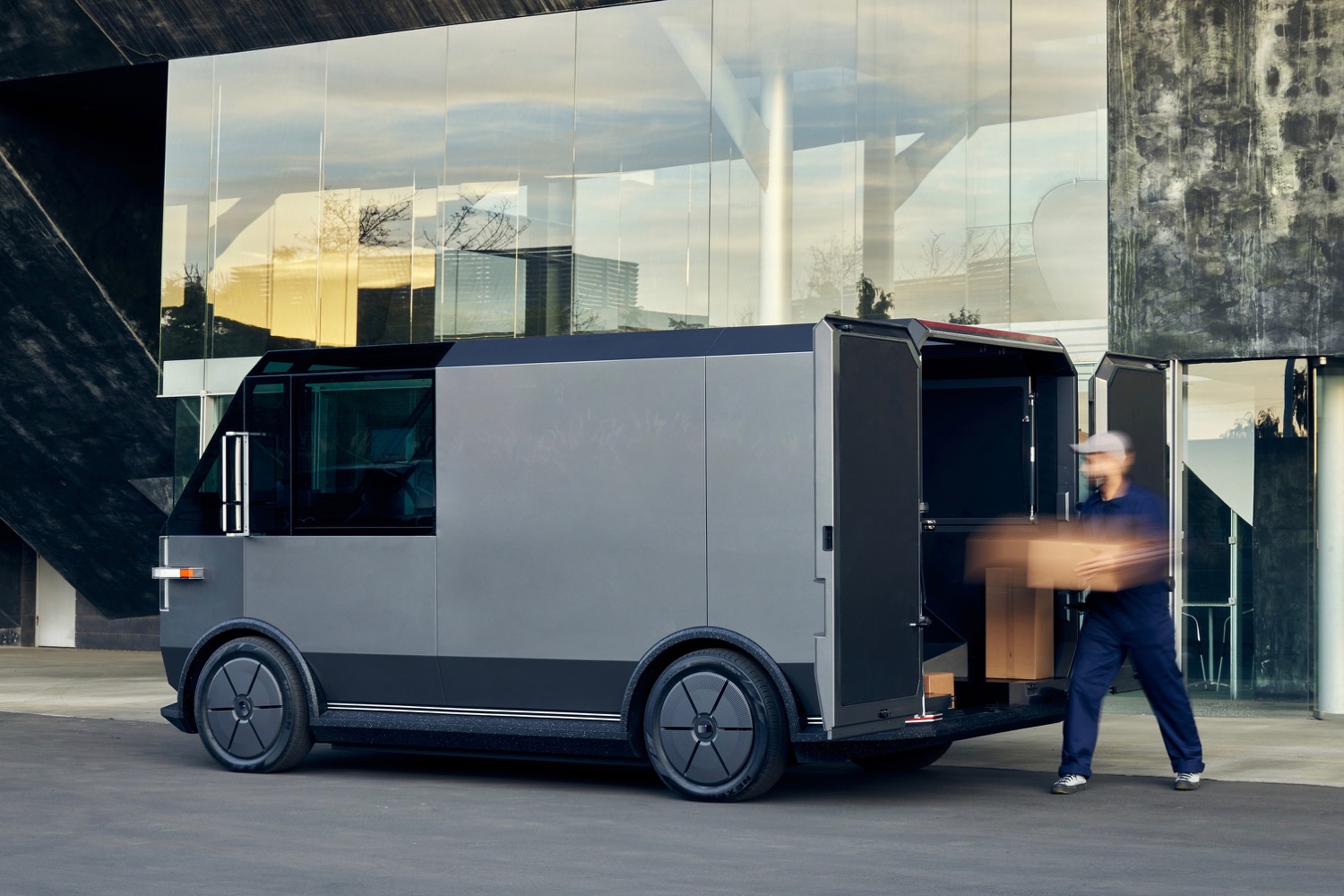After introducing its podlike electric car last year, startup Canoo has unveiled a second vehicle. It’s an electric delivery van that is expected to cost about $33,000, and will start limited production in 2022, Canoo said in a press release. The company doesn’t expect to start full-scale production until 2023, however.
The pivot from passengers to cargo is made possible by Canoo’s “skateboard” platform, which puts all of the vehicle’s mechanical components in one self-contained chassis. This allows different bodies to be placed on top of the same basic chassis, without major redesign work. In addition to its own vehicles, Canoo may license the platform to Hyundai for some of the Korean automaker’s future electric cars.
Canoo plans to offer two versions of the van — the multipurpose delivery vehicle 1 (MPDV1) and taller-roofed MPDV2. The company will also offer 40-kilowatt-hour, 60-kWh, and 80-kWh battery packs, with estimated ranges of 130 miles, 190 miles, and 230 miles, respectively, in the MPDV1 model. A single electric motor sends 200 horsepower and 236 pound-feet of torque to the front wheels.
The streamlined packaging of the skateboard platform gives the MPDV nearly 30% more cargo volume than conventional cargo vans, Canoo said. The van also has a fairly low step-in height of 17 inches, making it easier for drivers to get in and out, while a steer-by-wire system makes it more maneuverable in tight urban streets than other vans, according to Canoo.

With the 80-kWh battery pack and DC fast charging, a 20% to 80% charge can be done in 30 minutes, according to Canoo. The van can also be equipped with 120-volt or 240-volt AC power outlets to run tools or devices, and features a shelf to the left of the driver’s seat that can hold a laptop.
Canoo promised full connectivity, including over-the-air software updates and data-reporting capabilities. Some degree of driver-assist technology will be included as well, but Canoo didn’t provide much detail on that.
Founded in 2017 by a group of ex-Faraday Future employees, Canoo’s first vehicle was a seven-passenger electric car that will be marketed exclusively through a subscription service. Instead of buying or leasing, customers will pay a monthly fee that includes the cost of the vehicle, insurance, and maintenance. Canoo previously said it would launch that service in 2021, starting in Los Angeles and expanding up the West Coast. Delivery vans are typically bought by commercial fleets, not individual users, so it’s unclear how Canoo will market its van. The company did say it will collaborate with large fleet customers on custom vehicles to meet specific needs, though.
Canoo isn’t the only company developing an electric delivery vehicle. Rivian is building electric vans for Amazon, using its own skateboard platform. Arrival is expected to supply electric vans to UPS, while Ford recently unveiled an electric version of its popular Transit cargo van. Mercedes-Benz already sells electric vans in Europe, and recently announced that it will bring its next-generation eSprinter van to the United States.


